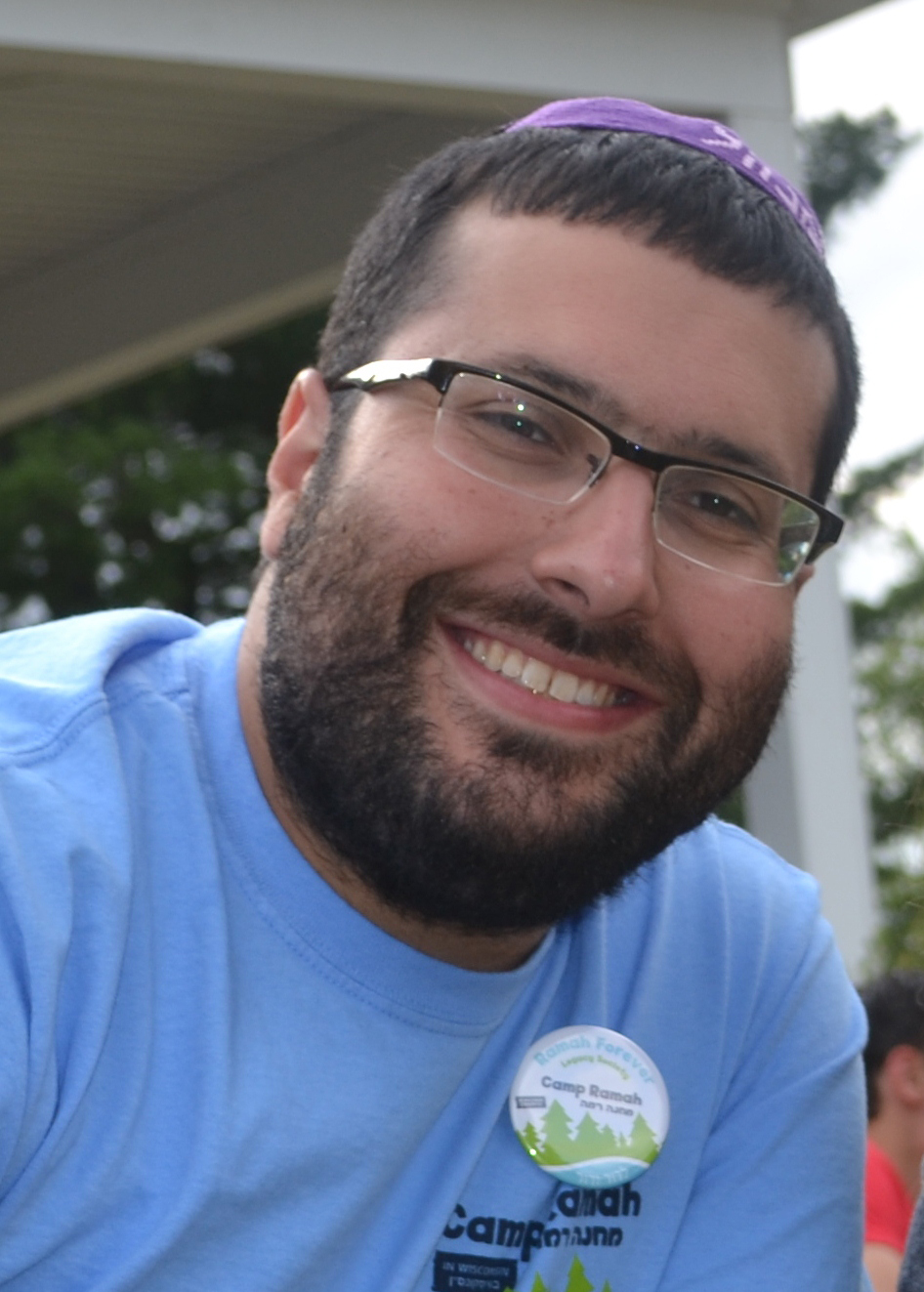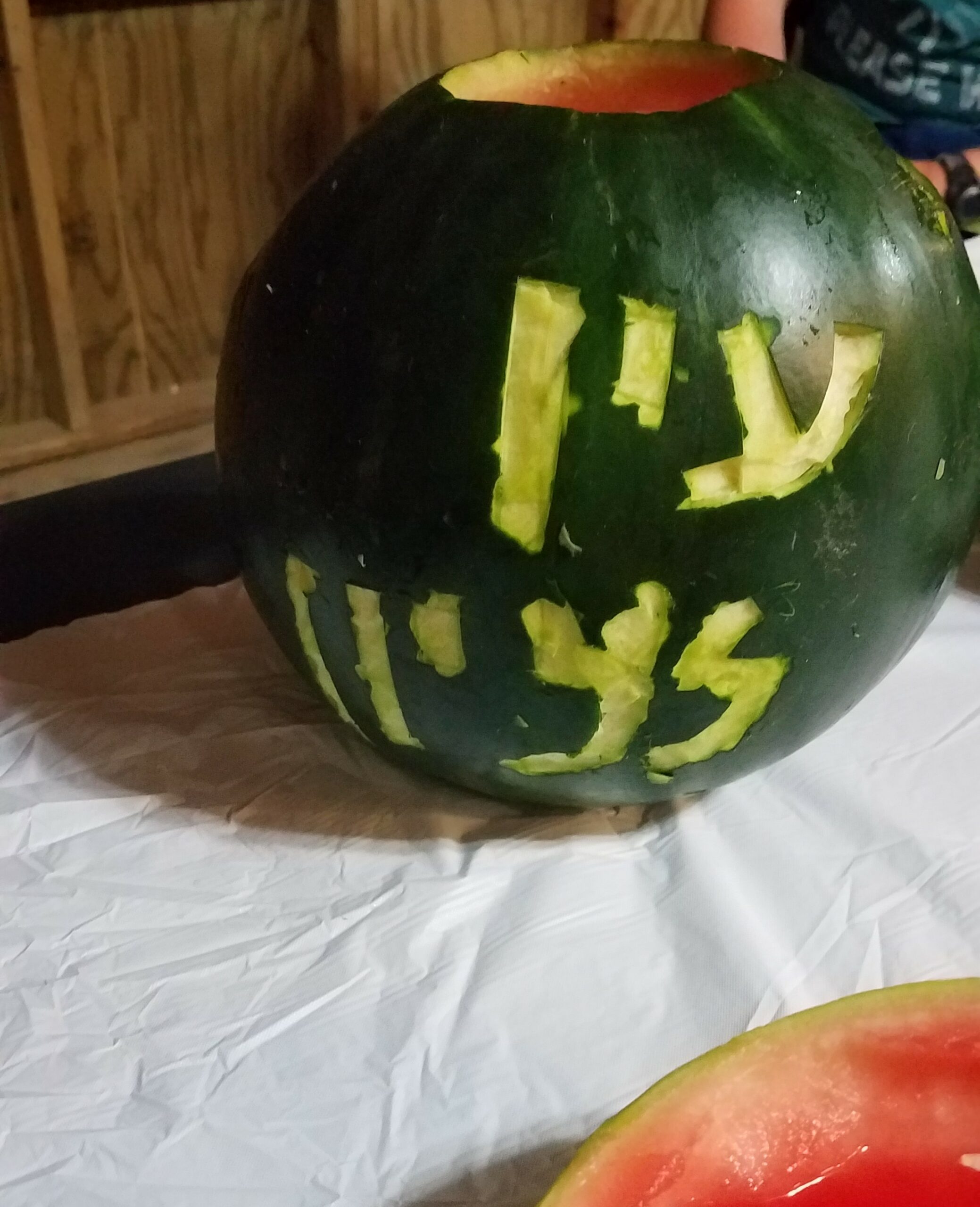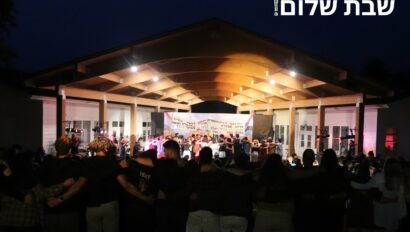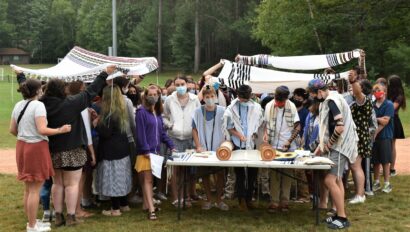We’d like to thank
- Camp Ramah in Wisconsin President Jon Sherman
- Our architect George and his wife Arona Sarfatty
- Members of Nivo 2005 who joined us for their 13th Nivonim Reunion
for joining us for a visit this last week!
Last week at this time, we were in the midst of what would be three straight days of regular rain. This week we are in the midst of an extended period of sunny days, refreshing nights, and stunning sunsets. It feels like camp is taking place fully outside – like it’s supposed to be – and the sights and sounds are amazing. Yesterday morning my eyes caught a new sight: stand-up paddleboards (SUPs) on Lake Buckatabon! Our new waterfront activity has caught on faster than we could have imagined with campers and staff literally finding their footing within seconds. A group of Machon (10th grade) and Tikvah (special needs) campers participating in a month-long outdoor education intensive spent the day in survival mode: packing into waterproof bags, building rafts out of logs and twine, sailing to one of the islands in the middle of the lake, making fire from twigs, cooking their own food, and spending the night. Shoafim (8th grade) had “Senior Night” last night, dressing up as senior citizens, playing bingo and participating in a variety of age appropriate activities. Guitars and new music fill our t’fillah (prayer) spaces, in addition to the chadrei ochel (dining halls) during song sessions. Our sports courts are abuzz with drills – softball, basketball, soccer, tennis, and volleyball – developed to improve individual skills. Last night, walking down the lane between our girls’ cabins around 10 p.m., I heard the beautiful sound of a classic Ramah night-time ritual – the song ‘בשם ה / b’shem hashem / In the name of God – which the counselors and campers sing together.
My office in the Beit Am performing arts complex makes it literally impossible for me to ignore the preparations for Sunday night’s Zimriyah song festival, my favorite night of the summer for twenty-seven years and counting. I regularly hear the mellifluous voice of Josh Warshawsky, who directs our Performing Arts programs, teaching music to different aidot (divisions) and reviewing songs with them as they prepare for Sunday. I also hear the constantly-improving cacophony of our tizmoret (orchestra) in preparation for their debut as the backup band. Last summer over forty campers and staff participated in the tizmoret!
Much of the Ramah experience rests on the shoulders of our madrichim (counselors) and roshei eidah (division heads) who are responsible for the minute-to-minute and day-to-day programming for our campers. While working under the guidance of professional educators and other support staff, they choose and then enhance or recreate programs from our constantly evolving program bank. Early next week we’ll share some of the amazing work they came up with during this week.
While much of your child’s experience here is purposefully cultivated with the full buy-in and initiative of our cabin staff, there are a handful of initiatives that Adina and I develop each summer in partnership with senior educators. One of these initiatives is our summerlong theme, which this year is עין לציון / ayin l’tziyon / An Eye to Zion. Our theme celebrates the 70th anniversary of the miraculous founding of the State of Israel and has already started to create conversations that will continue throughout the summer about a variety of related themes: what does homeland mean to us? What are the things Israel’s founders would have been proud of if they could see her today? Surprises? Questions? How do we look back at our own personal and family histories, and imagine a future – for our families and for Israel – in another 70?
The summerlong theme is formally launched for the chanichim (campers) at the Zimriyah. Josh has selected a slate of modern Israeli music that centers on the theme and, indeed, lays out a compelling vision, using the language of contemporary Israel, for what an ideal ציון / Zion consists of. It is a vision of love, of unity, of openness, of reflection, of bold dreams and visions.
Sunday afternoon our campers will receive their Zimriyah T-shirts, each aidah in their own traditional color. At dinner the chadrei ochel will feel like a magnificent Northwoods storm – electrifying, filled with ruach (spirit), thunderous, and weighty with what is shortly to come. After dinner the aidot will gather for pump-up speeches, one final review of their song, and the energy will begin boiling over. As we all enter the Beit Am gym we are greeted by Nivonim (11th grade), embracing their role as the leaders of Camp Ramah in Wisconsin. Once we’re all in the room we’ll identify the first set of Alufei Ha’ashpah (Excellent Cleaners) from different aidot, then move into the festival itself. The kids will belt out their song, as proud of their aidah’s identity as they are of the broader message of the song and, indeed, the fact that they can embody part of the Zionist dream in Conover, Wisconsin: part of an immersive Jewish community, singing Hebrew music written by native Hebrew speakers in the Modern Jewish State.
What is amazing about the Zimriyah, as it has developed over my nearly three decades of observing and living it, is how collegial it has become. The tone in the room is unbelievably positive, each aidah building off the energy of the others. After the formal part of the program is done, each aidah will sing their cheer, the core words written long ago and a special introduction and conclusion acknowledging the special nature of the 2018 incarnation of Kochavim (4th grade) or Solelim (7th) or Bogrim (9th). Once the songs are done the Beit Am will erupt into a massive song session for another forty-five minutes, after which Nivonim will have special time with Josh and the other members of tzevet shirah (music staff), playing favorite music in Hebrew and English long into the night.
A few years ago at camp I read a wonderful book by James Carroll called Jerusalem, Jerusalem. It is a history of the idea of Jerusalem from the ancient world to modern times. It is also a reflection on the usage of Jerusalem’s various other names, including Zion, and how different eras of history have related to them. One of the most powerful sections of the book is when Carroll turns his attention from the Middle East and focuses it squarely on the New World, noting how the Pilgrims were escaping religious oppression in England and sought a new life in, among other places, a city they named Salem. He then goes on to mine the writings and language of American Protestantism, Abraham Lincoln, and Ronald Reagan and their imagery of America as a city on the hill, a place of refuge and messianic dreams: a new Zion. Etymologically, zion means a place of refuge and safety; why it became synonymous with Jerusalem is obvious, but as we celebrate triumphantly the 70th anniversary of the founding of the state we also have the opportunity to explore the other resonances of Zion.
“Camp” happens in all sorts of different places. In the Beit Am on Sunday evening on one of its largest scales; on stand-up paddleboards and rafts and ropes course elements and tennis courts and pottery wheels and lathes and baking challah; on quiet walks and card games; on the one-on-one conversations between friends. When camp works each of these places are filled with little tastes of a utopian magic, supportable here only for a fraction of every year but ultimately ephemeral. They are little bits of Zion, a heavenly and ultimately intangible Zion, which reminds us of the magnificence and potential of the earthly Zion. Which is why we keep our eyes metaphorically glued in that direction; Ayin l’tziyon.
Shabbat shalom,
Jacob
Questions to ask your campers this week:
Garinim: What did you learn about the elements (wind, water, fire, earth) in Israel?
Solelim: What was the most interesting Jewish community you learned about?
Shoafim: What did you learn about your passions and how to show others about them?
Bogrim: Are there places at camp that are holy to you?
Machon: What personality type are you and what did you learn about yourself?
Tikvah: Who is your Machon chaver and what do you like to do with them?
Nivonim: What did you learn about turning your thoughts and words into action and change?
Atzmayim: How can we learn from our mistakes and be better people in the future?







